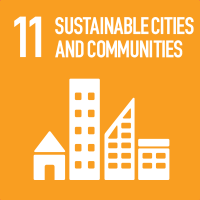Studying at the University of Verona
Here you can find information on the organisational aspects of the Programme, lecture timetables, learning activities and useful contact details for your time at the University, from enrolment to graduation.
Study Plan
This information is intended exclusively for students already enrolled in this course.If you are a new student interested in enrolling, you can find information about the course of study on the course page:
Laurea magistrale in Governance e amministrazione d'impresa - Enrollment from 2025/2026The Study Plan includes all modules, teaching and learning activities that each student will need to undertake during their time at the University.
Please select your Study Plan based on your enrollment year.
1° Year
| Modules | Credits | TAF | SSD |
|---|
1 module between the following2 modules among the following2° Year It will be activated in the A.Y. 2025/2026
| Modules | Credits | TAF | SSD |
|---|
1 module between the following2 modules among the following| Modules | Credits | TAF | SSD |
|---|
1 module between the following2 modules among the following| Modules | Credits | TAF | SSD |
|---|
1 module between the following2 modules among the following| Modules | Credits | TAF | SSD |
|---|
1 module between the following ("Advanced international accounting" 1st year or "Business valuation" 2nd year)Legend | Type of training activity (TTA)
TAF (Type of Educational Activity) All courses and activities are classified into different types of educational activities, indicated by a letter.
Economic evaluation of innovative and sustainable projects (2024/2025)
Teaching code
4S009793
Teacher
Coordinator
Credits
6
Language
Italian
Scientific Disciplinary Sector (SSD)
SECS-P/03 - PUBLIC ECONOMICS
Period
Secondo semestre LM dal Feb 17, 2025 al May 23, 2025.
Courses Single
Authorized
Learning objectives
The focus of the course is on the ex ante and ex-post economic evaluation of projects/policies. Par-ticular attention will be paid to projects/policies undertaken by the public sector, or with major impacts from the societal standpoint. The discussion of the theoretical background will be carried on along with the introduction to the tech-niques typically employed to tackle typical issues in economic evaluation. Case studies from a variety of sectors will be presented. Students attending the course will be given the opportunity to work autonomously on a specific case study.
Prerequisites and basic notions
No prior knowledge is required. Basic concepts related to Microeconomics and Public Economics will be covered during the course.
Program
- Main Types of Evaluation
- The Importance of Evaluation in the Italian Context
- Evaluation Professionals: Characteristics and Career Opportunities
- Ex-Ante Evaluation of Innovative and Sustainable Public Interest Projects: Cost-Benefit Analysis
- Ex-Post Evaluation of Innovative and Sustainable Public Interest Projects: Social Experiments
- The Contribution of Evaluation to the Goals of the 2030 Agenda and the Missions of the PNRR
- Analysis of Case Studies and Empirical Research
The teaching materials and detailed syllabus will be available on the course's dedicated Moodle page.
Bibliography
Didactic methods
The course includes in-person lectures.
The in-person lectures will be supported by PowerPoint presentations and encourage active student participation through questions, group discussions, and sharing of perspectives.
Practical group exercises will also be organized where studentes have to solve real-world problems by applying the knowledge acquired.
Students will develop individual or group projects on topics proposed by the professor, which will then be presented and discussed collectively in class.
The final evaluation will consider both active participation during lessons, the presentation of the in-depth project, and a final written exam.
Guest expert lectures will be included, involving discussion of highly topical issues.
The lectures will be held in Italian.
Further information regarding the organization of the course will be provided on the course's Moodle page.
Learning assessment procedures
The exam consists of a written test with questions focusing on the theory of assessment techniques and the empirical articles listed in the syllabus. During the course, there will be assignments and activities with specific formats and deadlines set by the instructor, which will contribute to the final evaluation.
Evaluation criteria
Knowledge and understanding: assess whether the student has acquired and comprehended the fundamental course content, demonstrating mastery of concepts, theories, and terminology.
Application of knowledge: assess the student's ability to contextualize theoretical notions and apply them to analyze concrete cases, solve problems, and develop critical reasoning.
Communication skills: assess the ability to clearly, coherently, and accurately articulate ideas using appropriate language.
Critical thinking: assess the aptitude to logically interpret information and express well-substantiated and circumstantial opinions.
Synthesis ability: assess the capacity to select key concepts and present them in a concise yet exhaustive manner.
Formal correctness: assess adherence to instructions, organization of content, proper use of citations and references.
Criteria for the composition of the final grade
The final grade is determined by the evaluation of the written exam. However, for students who have participated in the practical exercises proposed during the course, the final grade will also take into account the results of these exercises.
Exam language
Italiano




